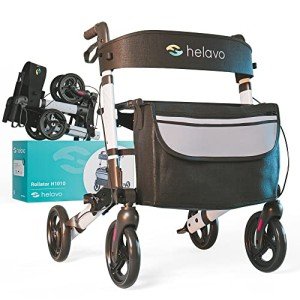Responsible For A Elderly Walker Budget? 10 Fascinating Ways To Spend Your Money

The Importance of Elderly Walkers: Enhancing Mobility and Independence
As people age, their bodies go through various changes that might impact their mobility. Conditions such as arthritis, osteoporosis, and other chronic disorders can make browsing the environment challenging for the elderly. Thankfully, assistive gadgets like walkers can considerably improve mobility, guaranteeing that seniors preserve their independence and quality of life. This article will delve into the different kinds of walkers readily available, their benefits, and essential factors to consider when picking the best one.
Understanding the Different Types of Walkers
A walker can provide the essential support for seniors fighting with mobility. However, not all walkers are developed equal. Here's a detailed breakdown of the different kinds of walkers readily available.
| Type of Walker | Description | Best For |
|---|---|---|
| Standard Walker | A lightweight frame with four legs offering fundamental support. | People needing assistance while walking. |
| Two-Wheeled Walker | A walker with 2 wheels at the front permitting easier motion. | Users who need more mobile support for faster walking. |
| Four-Wheeled Walker | A rollator with four wheels, brakes, and a seat. | Active seniors who require more mobility and a place to rest. |
| Knee Walker | A specialized walker with a padded platform for resting the knee. | Individuals recovering from foot or ankle injuries. |
| Folding Walker | A walker that can be collapsed for easy storage and transportation. | Seniors needing convenience when traveling. |
Table 1: Types of Walkers
Benefits of Using a Walker
Walkers offer a wide range of advantages for seniors, consisting of:
- Enhanced Stability: Walkers provide extra support to the user, assisting to foster confidence while walking.
- Enhanced Balance: With a walker, seniors can rearrange their weight, enhancing balance and reducing the danger of falls.
- Increased Independence: Users can move their homes and communities more conveniently, enabling them to participate in social activities.
- Minimized Pain: Walkers can reduce the influence on joints and muscles, making movement less painful for conditions like arthritis.
- Flexible Usage: Walkers appropriate for different environments, whether indoors, outdoors, or on irregular surfaces.
Table 2: Benefits of Using a Walker
Picking the Right Walker
Selecting the right walker is vital to optimizing mobility and ensuring comfort. Here are some considerations:
- Weight Capacity: Ensure that the walker can support the user's weight. Most walkers have actually a defined weight limitation.
- Height Adjustment: Adjustable height features guarantee that the walker is set to the proper level for the user's height, promoting good posture and convenience.
- Wheels vs. No Wheels: Depending on the user's abilities and environment, a walker with wheels might be more beneficial for motion, while a non-wheeled walker might provide more stability.
- Additional Features: Some walkers feature built-in seats, storage, or devices (like cup holders) that can enhance user experience.
Table 3: Considerations for Choosing a Walker
Upkeep of Walkers
Correct upkeep of walkers is crucial for making sure security and durability. Here are some fundamental maintenance ideas:
- Regular Inspections: Check for fractures, rust, or loose screws and make sure that the rubber ideas on the legs are undamaged.
- Wheel Maintenance: Ensure that wheels move freely and are not stuck; lube them if essential.
- Adjustments: Periodically check if the height and settings stay correct, changing them as needed to maintain user convenience.
Table 4: Maintenance Tips for Walkers
Frequently Asked Questions About Elderly Walkers
1. What is the typical cost of an elderly walker?
The prices of walkers can vary significantly based on the type and features. Standard walkers may cost between ₤ 50-₤ 100, while specialty walkers or rollators can vary from ₤ 100 to ₤ 300.
2. Are walkers covered by insurance?
Lots of insurance coverage plans, consisting of Medicare, cover the expense of walkers, provided they are deemed clinically needed. It's essential to contact your insurance service provider for specifics.
3. How do I understand when my enjoyed one needs a walker?
Signs may include trouble walking separately, frequent falls or near-falls, and increased tiredness while performing everyday activities. A health care expert can supply a thorough assessment.
4. Can walkers be utilized outside?
Yes, many walkers can be utilized both indoors and outdoors. If preparing to use a walker outdoors, consider a design with wheels or wider legs for stability on numerous terrains.
5. The length of time can a walker last?
With proper maintenance, a good quality walker can last for numerous years, though wear and tear will vary depending upon usage frequency and conditions.
Walkers are indispensable tools that can bring back mobility and self-reliance for seniors while ensuring their safety. As Brake Rollator Walker live longer and lead active way of lives, purchasing correct assistive devices like walkers is more important than ever. Comprehending the types of walkers offered, their benefits, and how to choose the right one can empower users and their caretakers to make educated options. Ultimately, the ideal walker can result in enhanced quality of life, allowing aging individuals to stay active individuals in their communities.

